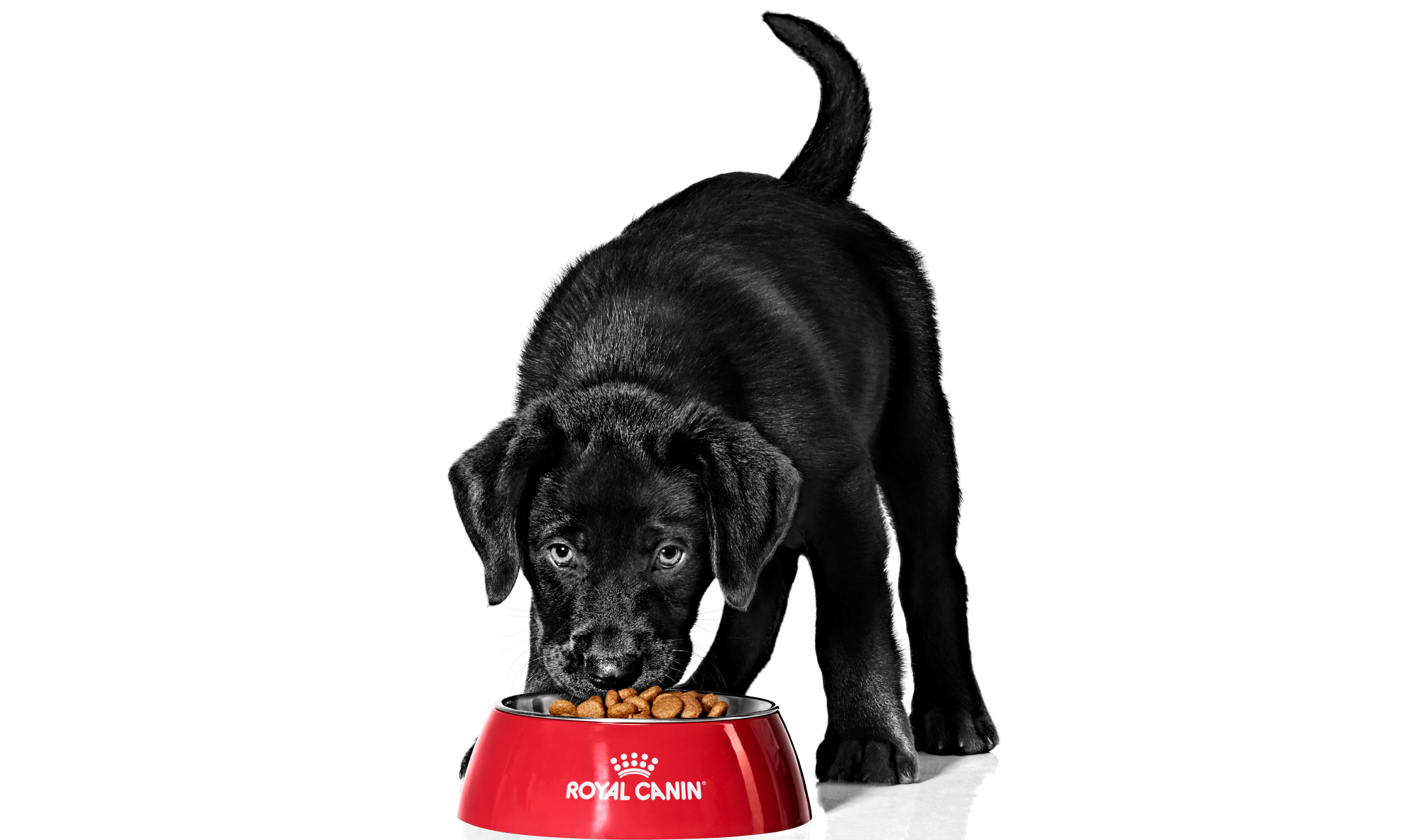
Puppy feeding and nutrition
Why your puppy’s diet is so important

How your puppy’s nutritional needs change

One month old
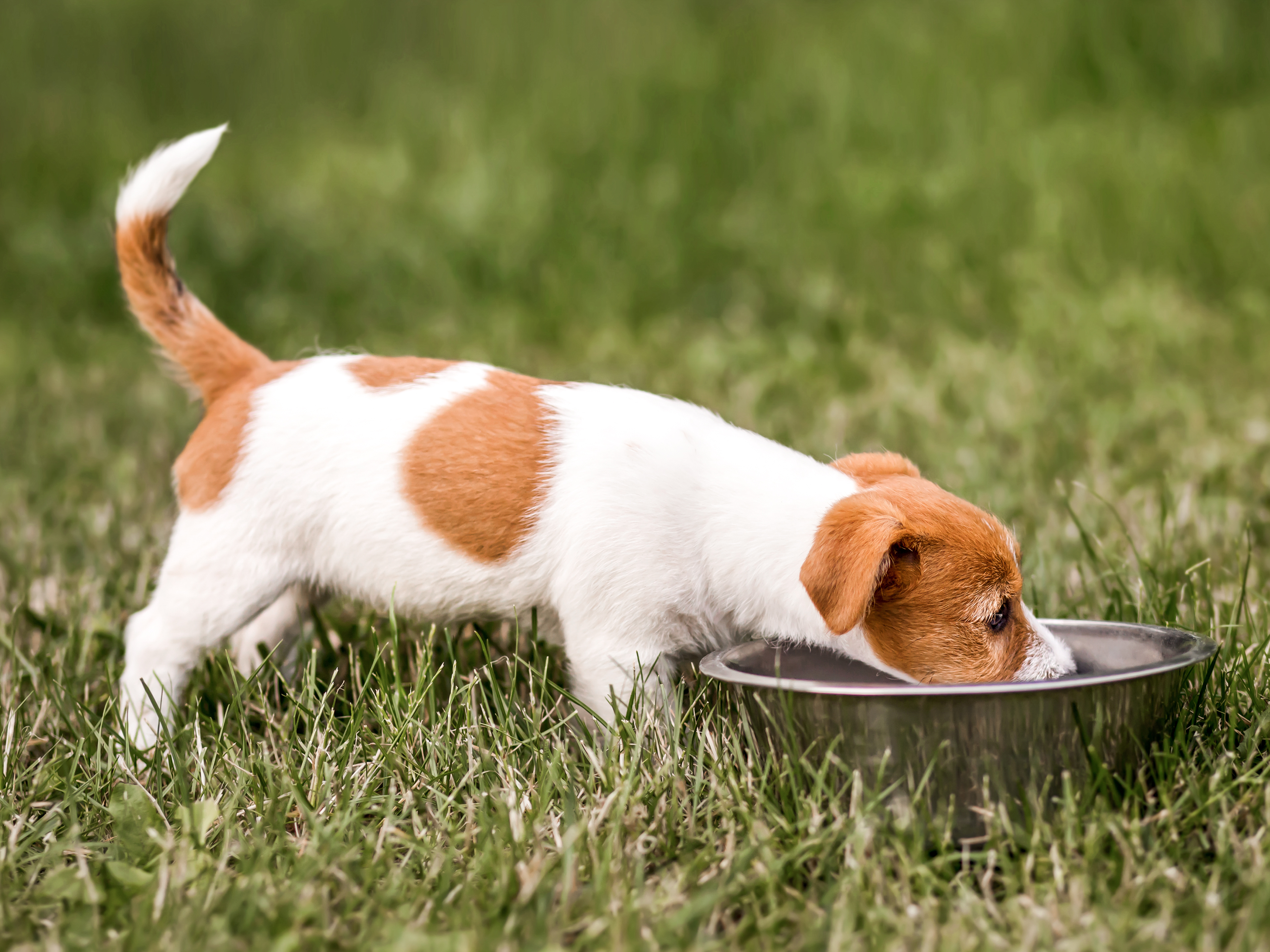
Two to four months
At this stage, the focus is on supporting the development of your puppy’s skeletal structure with carefully regulated amounts of calcium, phosphorus and Vitamin D.
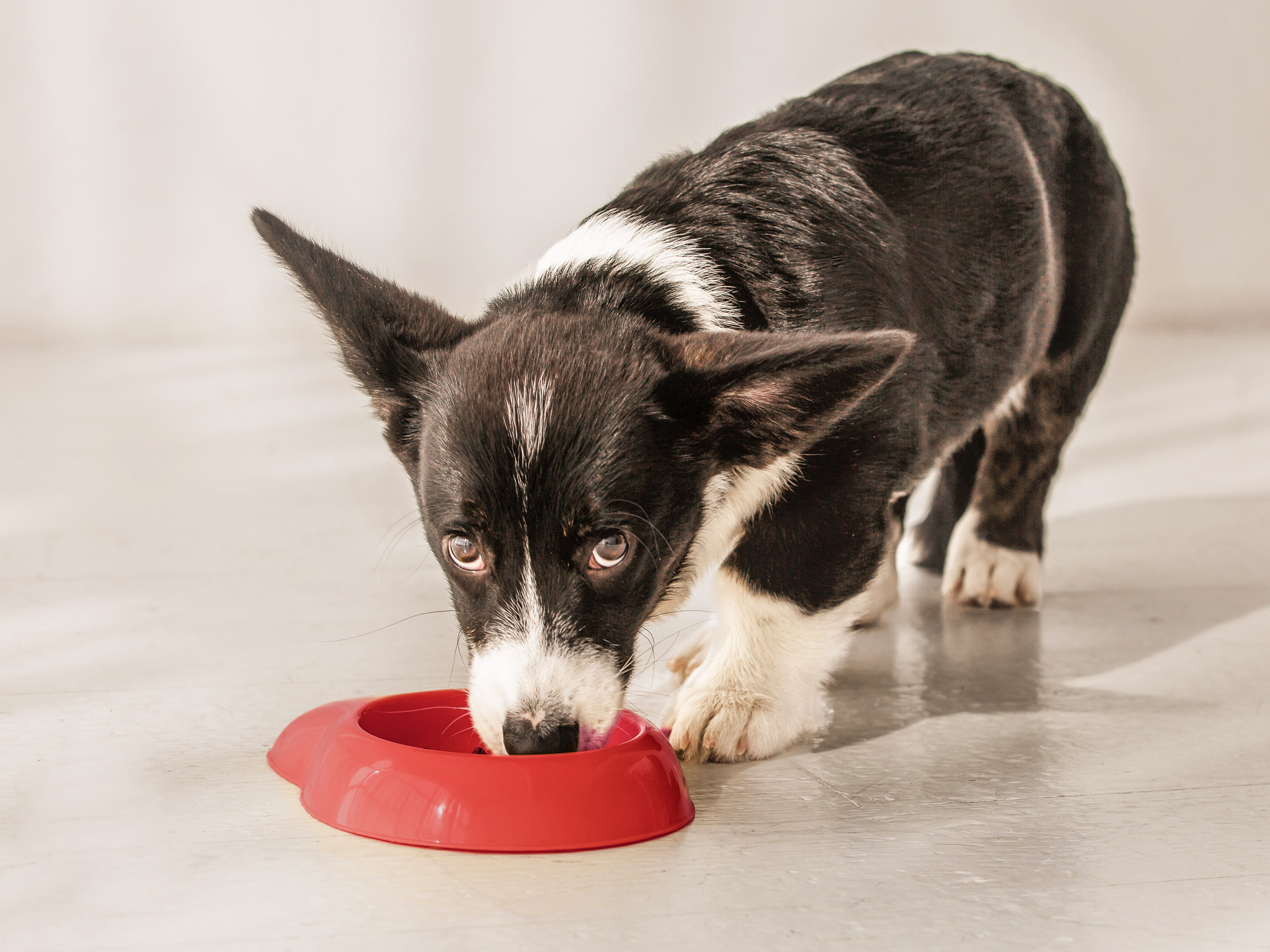
Four to seven months
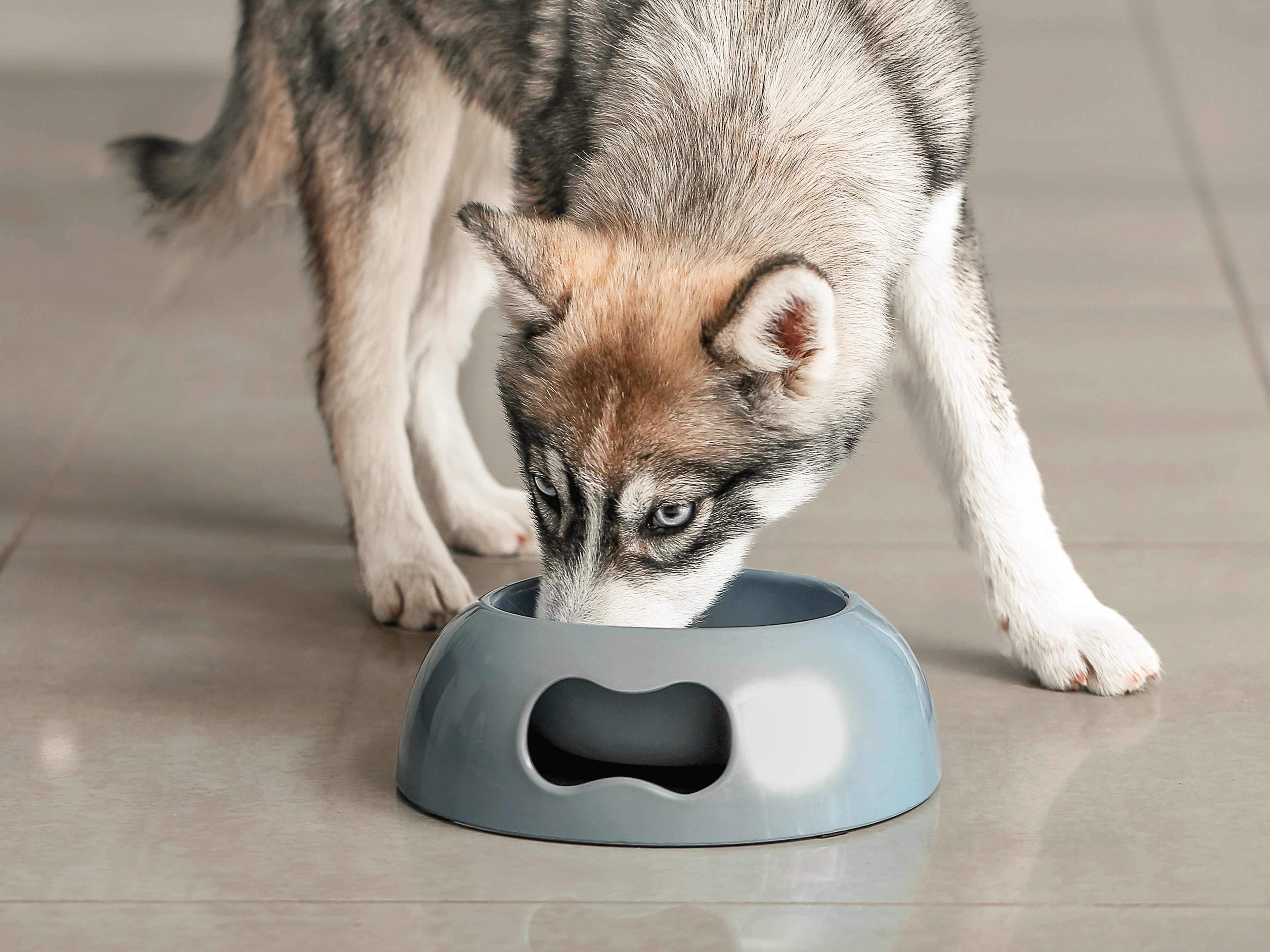
10 months old to adulthood
As puppies approach adulthood, they still need extra nutritional support for their joints, especially larger breeds as their muscles are filling out and putting pressure on their skeleton.
When does you puppy become an adult dog?
| X-SMALL | SMALL | MEDIUM | LARGE | GIANT | |
|---|---|---|---|---|---|
| Average adult weight | Up to 4kg | Up to 10kg | 11-25kg | 26-44kg | 45kg and more |
| Growth duration (birth to adulthood) | 8/10 months | 8/10 months | 12 months | 15 months | 18/24 months |
The nutrients needed in a puppy's diet
There are a range of vital nutrients that your puppy needs during the first months of life to aid healthy growth and development. A puppy's diet must be able to provide enough energy and quality protein to support growth and be easily digestible. ROYAL CANIN® diets are nutritionally balanced to offer a tailored diet to meet the needs of puppies of all sizes, lifestyles and breeds.
ROYAL CANIN®'s scientific approach to puppy nutrition
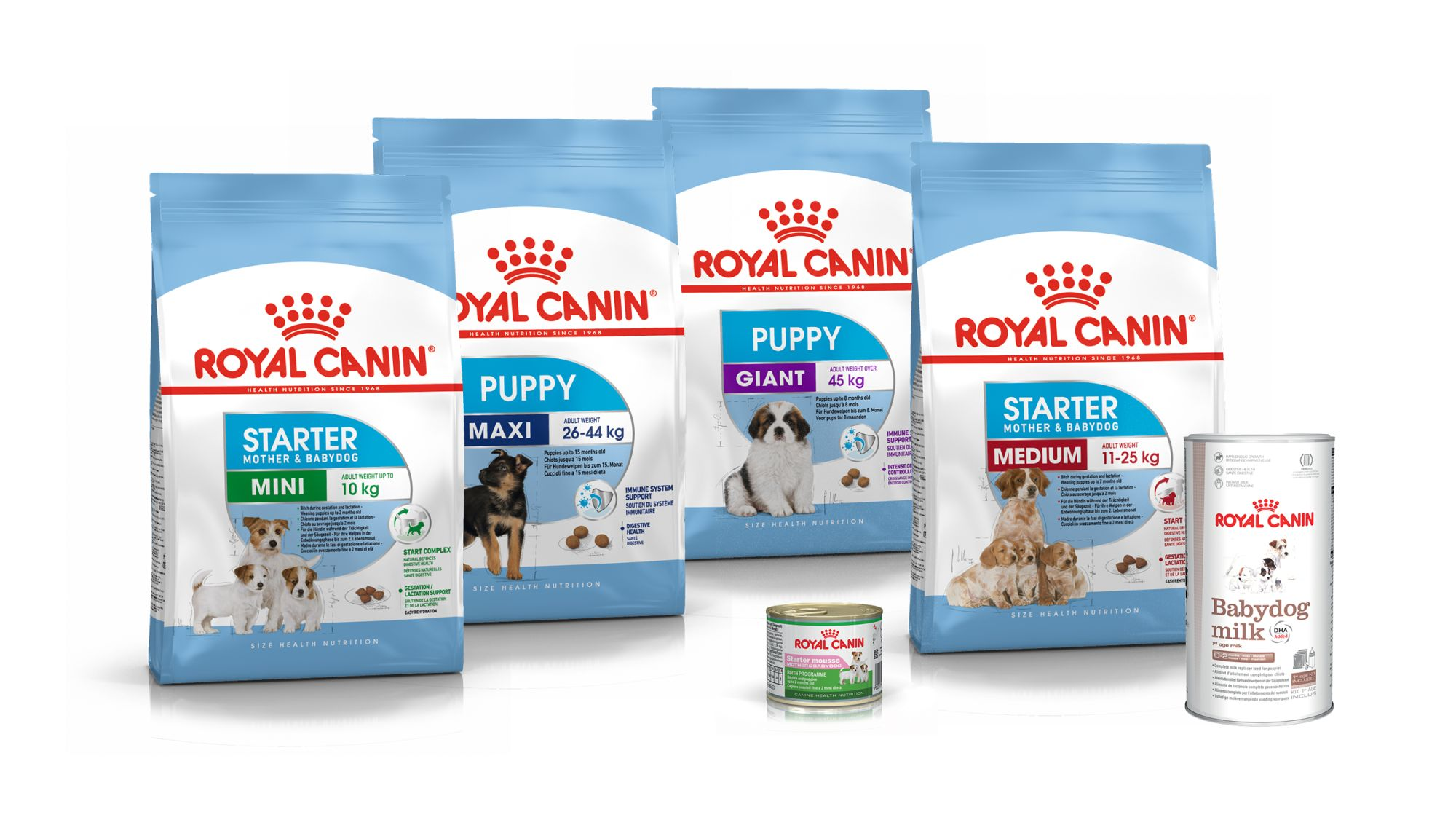
Our Puppy Ranges
How much should I feed my puppy?
- X-small – up to 4kg when adult
- Small – up to 10kg when adult
- Medium – 11kg to 25kg when adult
- Large – 26kg to 44kg when adult
- Giant – over 45kg when adult
- X-small and small breeds have weaker jaws and smaller teeth so need food that’s the right size and texture.
- Medium breeds tend to be more active outdoors so need plenty of energy and helping building their natural defences.
- Large and giant breeds grow slower and need less energy per kilo of bodyweight than small breeds.
Setting the right puppy feeding schedule
X-Small or Small breeds
Up to 4 months 3 meals a day
4-10 months 2 meals a day
Adult 1-2 meals a day
Medium breeds
Up to 6 months 3 meals a day
6-12 months 2 meals a day
1-2 meals a day
Large or Giant breeds
Up to 6 months 3 meals a day
6-15 months 2 meals a day
Adult 1 or 2 meals a day

How a puppy’s feeding schedule changes
Initially, during weaning, your puppy will need four meals a day spread evenly from morning to evening. By the time they reach adulthood, they’ll be able to cope with one or two meals daily.
Smaller breed dogs reach adulthood sooner than others, so they can move to fewer meals a day at an earlier stage. Below is a guide according to your puppy’s expected adult size. But it’s always worth checking with your vet about the best feeding schedule for your individual puppy.
Puppies thrive on routine and don’t need variety in their diet like humans do. To help them feel secure, and avoid upsetting their digestion, give them the same food, preferably at the same times, in the same place, using the same bowl.
What is mixed feeding for puppies?
The benefits of mixed feeding for puppies
Hydration
In dry foods, the moisture content is around 8%, while in wet foods, this is usually at least 75%.
Palatability
Our wet formulas are designed to be highly appealing to the fussiest of puppies.
Weight Management
Wet food’s high moisture content means you can serve a larger portion for the same number of calories.

When should I begin mixed feeding?
Good feeding habits for your puppy
Maintain portion control
Avoid human food
Be careful with treats
Limit activity before and after feeding
Feed your puppy after you
Keep feeding times calm
Set the pace
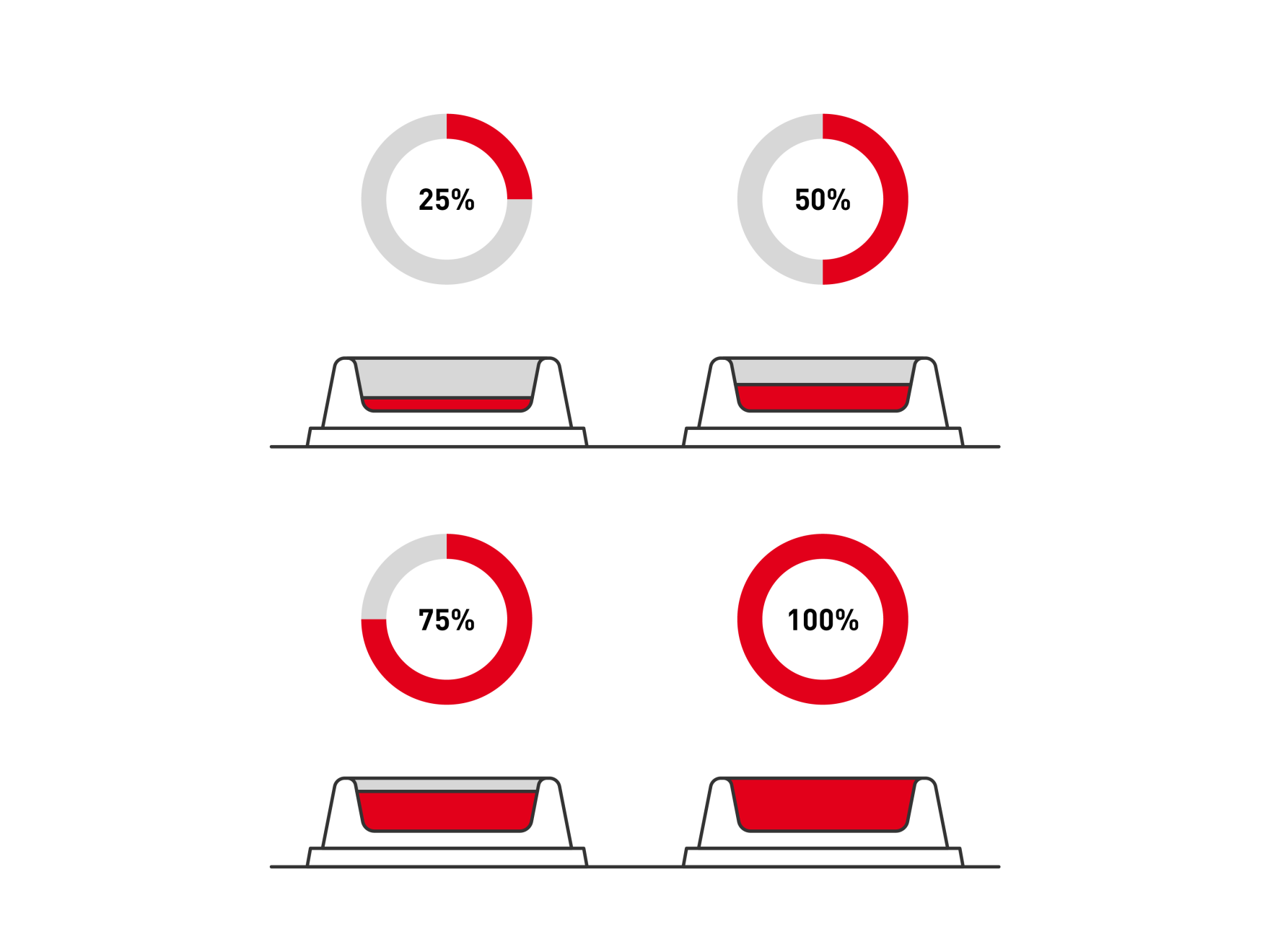
How to change your puppy’s food
- Day 1 and 2: 75% previous food + 25% new food
- Day 3 and 4: 50% previous food + 50% new food
- Day 5 and 6: 25% previous food + 75% new food
- Day 7: 100% new food
Puppy feeding FAQs
Keeping an eye on your puppy’s weight is useful to make sure they’re growing, but the body condition score gives a clearer picture of whether they’re overweight or underweight. This is important to know as both can cause health issues. The body condition score focuses on the look and feel of your puppy to assess whether they’re a healthy shape. Your vet can show you how to score your puppy.

Our Puppy Ranges

Find the right product
Answer questions about your pet
Get customised recommendation
Unlock your pet’s health follow up